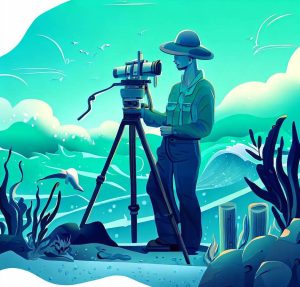Are you intrigued by a multifaceted and constantly evolving STEM career? Pursue a career as an Oceanographer. In this field, a wide range of specializations and research opportunities await you. Dive deep into our oceans’ mysteries as an Oceanographer, where you’ll study everything from marine life to the complex dynamics of underwater currents. Whether marine biology, marine geology, or other numerous sub-disciplines interest you, you’ll find your niche. Moreover, by choosing oceanography, you can engage in pioneering research and enhance our understanding of the Earth’s vast oceans. If the mysteries of the deep blue captivate you and you’re ready to make a significant scientific impact, oceanography could be your ideal career.
Check out our knowledgebase for more information. Are you looking for your dream job in STEM? Look here.








